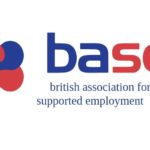Today WorldSkills UK and the Careers and Enterprise Company launch their report exploring the gender differences in careers advice and aspirations.
The report suggests that young people still hold traditional views on careers with gender stereotypes still embedded. Young women are still more likely to choose a career in care-related jobs, such as teaching and being a nurse, whilst young men are more likely to opt for jobs in engineering or IT. Girls typically picks careers with lower earning potential and both sexes are likely to suggest careers for girls which don’t require going to university. young men were also more likely to say they would consider a technical and vocational education or career in the future than young women (40% vs 32% respectively) and also more likely to say that they know about technical and vocational education and careers (38% vs 32% respectively).
The world of work:
Young people are most likely to want to work in one type of job for the rest of their life, but in different companies (44%) and least likely to want to work in different types of jobs, in different companies and sectors (23%). This presents a challenge to the plans of employers and those in the education sector who are gearing to move towards a more flexible and informal way of working, and a challenge to young people to adapt to this type of working life. It is also a challenge to teachers, careers advisers and parents to make sure they are appropriately preparing young people for the workplaces of the future.
Young men in the survey were more likely to suggest that they felt ready for the world of work but young women were likely to have better soft skills. Women are more likely to say that they are good at most soft skills than men, with the notable exception of using technology. In addition to having more soft skills, young females are also accessing more types of careers information and advice than young men and are also more likely to access careers advice generally.
Visiting a workplace, talking to a current apprentice or visiting a university are the most important types of careers advice or information that young people can access to help them feel informed. Only a quarter or fewer are proactively accessing these. A quarter say they have visited a workplace (26%) or a university (27%), and only 9% have talked to a current apprentice. Young people are also more likely to feel informed if they have attended a career fair or show, but again few actually have (24%). Young people also prefer to learn in a hands on way.
Parents:
Parents and teachers are key people that young people turn to, this reinforces the need to inform adults about careers so that they can
help the young people who turn to them for guidance.
Parents need to better understand the full range of available careers and the expectations and experiences of their children with a different gender to themselves so that they can best help them feel prepared and offer them relevant advice.
Next Steps:
- Explore how we are supporting young people to develop their skills with our free Young Professional Membership
- Take a look at the work we are doing to help support employers better engage with young people







